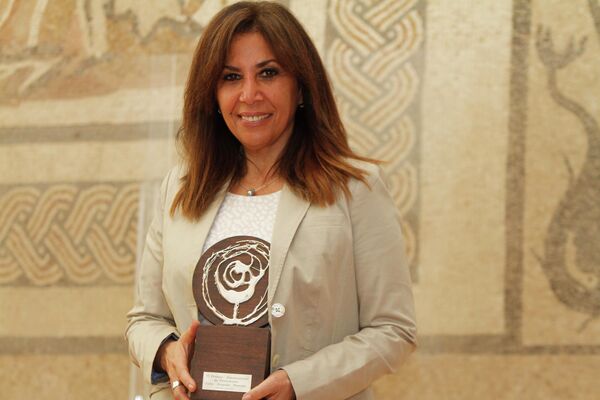CAIRO, January 26 (Shahira Amin for RIA Novosti) - Tens of thousands of protesters went back out onto the streets in Cairo and other major Egyptian cities on Friday to mark the second anniversary of the mass uprising that toppled former President Hosni Mubarak.
Two years on, the scenes in Tahrir Square were reminiscent of the January 2011 revolt, with protesters reiterating the now-familiar revolutionary slogans of "bread, freedom and social justice" and "the people want the downfall of the regime."
"We are back because none of the goals of the revolution have been met. We still want bread, freedom and social justice," said Raafat Selim, a 40-year-old accountant who was in the square protesting.
"Morsi has adopted Mubarak’s policies. His aim is to ikhwanize state institutions," Mahmoud Allam, an IT specialist and another Tahrir protester said, referring to the Arabic for Muslim Brotherhood "al-Ikhwan al-Musilmun."
Seven months into his presidency, Mohamed Morsi, Egypt's first freely-elected civilian president post-revolution, stands accused of betraying his election campaign promises by consolidating the rule of the Muslim Brotherhood (the movement from which he hails) and of being 'a leader of his Islamist group' rather than "a leader of all Egyptians."
Unlike the uprising two years ago, when Islamists and secularists united in opposition to Mubarak's rule, Islamists deliberately stayed away from Friday's protests in a bid to avert bloody confrontations with opposition activists.
Morsi stands accused of dividing the nation after issuing a controversial Constitutional Declaration in November giving him absolute powers. This presidential decree brought the decades-old Islamist-secular divide to the surface, sparking violent street clashes in December between the President's Islamist supporters and opposition activists.
Meanwhile, an Islamist-backed Constitution which was passed in a popular referendum some weeks later, further widened the rift between the Islamist government and Egypt's “secular camp” that comprises liberals, leftists and Christians.
Among the demands made by opposition activists in Tahrir on Friday were amendments to the new charter which they say "undermines the rights of minorities and women and curtails civil liberties and religious freedom."
Protesters raised banners reading "Down with Om Ayman's charter" a reference to Azza el Garf (popularly dubbed Om Ayman), a member of the Justice and Freedom Party who was on the panel drafting the constitution and whose conservative views on issues like female genital mutilation and harassment have stirred a great deal of controversy, fuelling fears among women of a possible regression in their rights.
Furthermore, a series of criminal prosecutions against journalists charged with "insulting the president" in recent weeks have raised concerns of a government crackdown on free speech. Critics say the intimidation of journalists and other repressive tactics used by the regime "are similar to those used by Mubarak in his clamp down on dissent."
The opposition protesters also repeated calls for "Qassas" or retribution for the martyrs of the revolution and the purging of the Interior Ministry. Police officers accused of being implicated in the killing of around 900 protesters during the 18-day 2011 uprising have been acquitted but are to be re-tried along with Mubarak and his security chief after a fact- finding commission recently found "new evidence" in the case. The commission has revealed, among other things, that military and security forces had used live ammunition in crackdowns on protesters during the uprising two years ago and in the ensuing transitional period.
Meanwhile, thousands of Al Ahly fans celebrated with cheers and fireworks outside Cairo’s Al Ahly Club on Saturday, after a judge announced the verdict in the case of last year's Port Said “massacre” – the deadliest soccer violence in the country's history.
The documents of 21 defendants, including nine security officials charged with killing fans in football riots last year – the deadliest soccer violence in the country's history – were transferred to the Grand Mufti for review, an indication that they had received the death penalty.
Seventy-two people were killed that night, most of them Al Ahly fans, in clashes between fans (and in an ensuing stampede) following a soccer match between Al Ahly and Port Said's Masry Club in February 2012.
Radical fans believed the killings were a set-up by the military and police to punish them for their active role in anti military protests during the transitional period. In a show of force, they had marched in downtown Cairo on Wednesday and threatened to avenge the deaths themselves if the accused were not convicted.
There were concerns that they would resort to violence if the verdicts were not to their satisfaction.
Those are not the only concerns, however. Other groups have also been arming themselves and preparing for combat. Black bloc, a group of young men dressed in black with masks over their faces, has recently emerged on the scene, threatening to use violence to deal with "the fascist regime" if the demands of the revolution are not fulfilled.
The mob, which is fast developing a following on Facebook and Twitter, has similar anarchist tendencies as its counterparts in Europe where it originated in the 1970s. Meanwhile, Islamists used Twitter to announce that thousands of them had gathered in mosques, with their weapons handy, should the need for combat arise.
With seven people already killed by live ammunition in Suez and one in Ismailia following a single day of violence on Friday, Egyptians are concerned that these latest deaths may be the spark that ignites an even bigger conflict and deeper divisions, plunging the country into greater political and economic turmoil.
Shahira Amin is an Egyptian journalist, the former deputy head of Egyptian state-owned Nile TV and one of its senior anchors.




